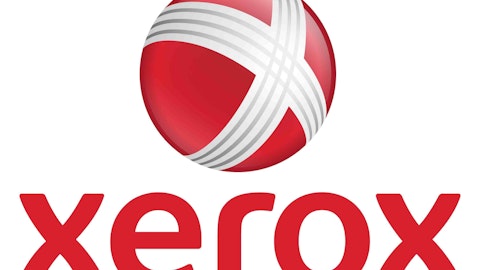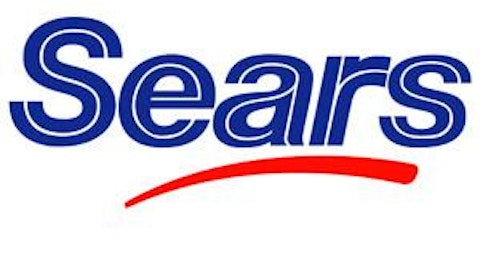With just five weeks and two days left until the state-run exchanges are scheduled to open for business, the reality of health-care reform, and its many unknowns, is beginning to settle in with millions of Americans.
For some, it’s a much needed step in the right direction. Those who earn four times or less of the U.S. poverty level will receive some form of financial health insurance subsidy, which will hopefully lead to better preventative care and lifestyle habits for lower-income individuals.
Conversely, upper-income earners and select middle-class individuals who fall outside this bracket may be on the line for higher health insurance costs and could be subject to an additional tax to help pay for the Patient Protection and Affordable Care Act’s Medicaid expansion depending on their income.
Many of the pros and cons regarding the PPACA, which is more affably known as Obamacare, boil down to political preferences. But, while we all have our own personal political beliefs, the fact of the matter remains that positives and negatives will rear their head from the implementation of this bill. Earlier this week, we saw one of those negatives hit the forefront in a very public format, and it has pundits again questioning whether Obamacare will strap American spending.

Source: White House on Flickr.
The root of concern
The uproar stems from a bifurcation in implementation dates between the individual mandate and the employer mandate. Originally, the entirety of Obamacare was to be fully implemented on Jan. 1, 2014. However, in early July the Obama administration announced that the employer mandate — the part of the bill requiring employers to provide health insurance to their full-time workers or face a stiff penalty of $2,000 to $3,000 per employee if their health care costs exceeded 9.5% of their income – would be pushed back a year to Jan. 1, 2015.
The reasoning behind the delay seemed plausible from the Obama administration — it wanted to see how quickly single payers transitioned into the individual insurance market — but it also left a potential gap between large employers and individuals that could result in the loss of coverage for perhaps 1 million employees.
Is Obamacare going to make your spouse a liability?
But, it’s not just a matter of whether or not employers will drop coverage for current employees; it’s about whether employers will wiggle out of their obligation to take care of an employee’s spouse.
Under the new bill, which has considerably more encompassing coverage options, many businesses are discovering that the costs of subsidizing their employees are rapidly rising. For businesses that put their employees at the forefront, it hasn’t been a big deal. Costco Wholesale Corporation (NASDAQ:COST) has long since put the health and well-being of its employees first, and Obamacare is merely an extension of the of same practices and standards it already has in place for full-time and part-time employees. Just last year, Costco Wholesale Corporation (NASDAQ:COST) announced a partnership with Aetna to create what’s called Costco Personal Health Insurance — essentially a way of getting personal insurance at cheaper prices than the current market rates. As you might have expected, Costco Wholesale Corporation (NASDAQ:COST) also allows spouses on its Personal Health Insurance plans. Obamacare aside, Costco Wholesale Corporation (NASDAQ:COST) deserves a pat on the back for its labor practices.
The same can’t be said for a number of other businesses, which have resorted to all types of cost-saving methods in recent months. Instead of cutting employees’ hours or laying off workers in order to reduce costs, businesses have simply gotten out their axe and told their employees that their spouses will no longer be covered under their new health plan — or that they’ll be forced to pay through the nose to keep that coverage on their significant other.

Source: Wikimedia Commons.
What brown can do for you (but not your spouse)
United Parcel Service, Inc. (NYSE:UPS) is bound to tick off their employee base and consumers by announcing this week that it plans to cut spousal health insurance coverage for some 15,000 employees in 2014 because of the added costs of Obamacare. The move is anticipated to save United Parcel Service, Inc. (NYSE:UPS) $60 million annually and is being done because United Parcel Service, Inc. (NYSE:UPS) feels working spouses should be easily able to obtain health insurance coverage on the individual market. According to USA Today, the move will affect about one-quarter of UPS’ workforce.
Yet, if you think that’s the only example of this you’d be sorely mistaken. USA Today‘s parent company, Gannett Co., Inc. (NYSE:GCI), has had a spousal surcharge in place for the better part of a decade in cases where the spouse could obtain insurance easily elsewhere (i.e., cases where the spouse also had a job). The thought here is that it could increase even more once the employer mandate goes into full effect.
Instead of surcharges, printing and information technology services provider Xerox Corporation (NYSE:XRX) goes straight to a penalty if you want to have your husband or wife on your health plan. In 2013, Xerox Corporation (NYSE:XRX) charged a $1,000 penalty to employees who added a working spouse to their health plan. In 2014, it will be raising this penalty to a whopping $1,500.
A growing reality & its implications
According to a survey conducted by research firm Towers Watson, 4% of employers cut spousal coverage in cases where coverage was similar in the spouse’s place of employment. Next year, an additional 8% answered that they would do the same. Added together, we’re looking at one-in-eight employers planning to exclude spouses from coverage by 2014.
This shift has two potential implications. First, it’s a big boost for WellPoint, Inc. (NYSE:WLP) and other health insurers that have become big players in the individual health insurance market. WellPoint, Inc. (NYSE:WLP)’s purchase of Amerigroup for $4.5 billion was made with the expectation that its Blue Shield Blue Cross network was going to be a big beneficiary of the Medicaid expansion (and it certainly should be). However, fewer employer-sponsored spouses could drive these individuals to seek insurance on the state-run health exchanges which would be another big boost for WellPoint, Inc. (NYSE:WLP). Conversely, it would be a bit of a blow to commercial insurers like CIGNA, which counts on employee plans for a good chunk of its revenue.
The other implication here is that it makes the consumer spending picture very cloudy. At first you wouldn’t think that dropping spouses from a company’s health plan would have any material impact on the economy, but digging a bit deeper I can see some possible pitfalls. Without spousal coverage, which often comes as a slightly cheaper package, families run the risk of having to spend more in annual costs for similar coverage on the individual market. Sure, it’ll save businesses a few dollars, but it’s not necessarily going to translate into more full-time jobs or help out families that are in sticker shock from the new health insurance pricing.
Clearly, health care reform is needed giving the rapidly rising costs of medical care and prescription drugs, but I believe we are seeing one of the downsides to this bill beginning to play out: Namely that for some large businesses, a spouse may wind up being considered a financial liability.
The article Is Obamacare Going to Make Your Spouse a Financial Liability? originally appeared on Fool.com and is written by Sean Williams.
Fool contributor Sean Williams has no material interest in any companies mentioned in this article. You can follow him on CAPS under the screen name TMFUltraLong, track every pick he makes under the screen name TrackUltraLong, and check him out on Twitter, where he goes by the handle @TMFUltraLong.The Motley Fool owns shares of, and recommends, Costco and WellPoint. It also recommends United Parcel Service.
Copyright © 1995 – 2013 The Motley Fool, LLC. All rights reserved. The Motley Fool has a disclosure policy.




